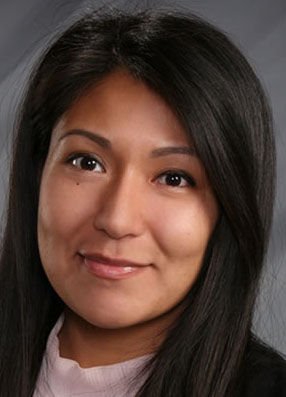Sheikh Sultan also helped the students with their lessons while at the educational centre. The children also gave Sheikha Jawaher a drawing as a gesture of appreciation for Their Highness visit and assistance.

Her Highness Sheikha Jawaher Al Qasimi speaks to refugee children at the centre. (Photo Credit: UNHCR)
Both royals met with refugees, including
single mothers who shared stories of their experiences and the challenges they faced with the dignitaries. Many of the families expressed their concerns regarding health, education and
shelter.
 |
His Highness Sheikh Dr Sultan Al Qasimi and Her Highness Sheikha Jawaher meet refugee children (Photo Credit: UNHCR)
|
The United Nations High Commissioner for Refugees (
UNHCR) lauds His Royal Highness Sheikh Sultan Al Qasimi, Supreme Council Member and Ruler of Sharjah and Her Highness Sheikha Jawaher Al Qasimi, Wife of the Ruler of Sharjah, and UNHCR Eminent Advocate’s for renewing international solidarity and humanitarian support for displaced persons worldwide while visiting refugees in Malaysian capital Kuala Lumpur.
The visit was the first time
Sheikh Sultan accompanied Sheikha Jawaher on an official mission in Her Highnesses’ capacity as UNHCR Eminent advocate.
His Royal Highness Sheikh Sultan stressed the importance of the international community’s attention to the suffering of refugees around the world and the need to move seriously towards providing them with the requirements for a dignified life, including shelter, food, health and education. His Highness emphasised that everyone in this world, whether governments, institutions or individuals, are required to play an active role in the protection of refugee families, especially children.
Dr Nabil Othman, UNHCR Acting Regional Representative to the Gulf Cooperation Council(GCC) Countries praised the efforts of Sharjah’s Ruling family, noting;
“His Royal Highness Sheikh Sultan Al Qasimi and Her Highness Sheikha Jawaher Al Qasimi’s generosity has touched the lives of thousands of vulnerable families in the Middle East and North African region and beyond. Their Highnesses truly reflect the values of humanitarianism and compassion, which are a true translation for the deep values of Islam.”
In light of HH Sheikha Jawaher’s personal commitment and interest in assisting refugee women and children, their Highnesses visited UNHCR’s Harmony Refugee Learning Centre, an educational centre in Kuala Lumpur where they met with refugee children. Time was spent speaking to the children and listening to their aspirations and concerns. Her Highness encouraged refugee children, particularly girls, to continue their pursuit of knowledge in order to secure a better future for themselves.
Reaffirming Their Highnesses resolve to alleviate the suffering of displaced persons worldwide, including refugees from Myanmar, Sheikha Jawaher, UNHCR’s Eminent Advocate, asserted:
“We are with you with our hearts and our actions. We came here to assess your conditions on the ground and listen to your requirements and needs. I will continue to work with UNHCR, with the support of His Highness Sheikh Dr Sultan bin Muhammad Al Qasimi, to mobilise support and provide you with your needs to live a dignified life until you return to your home country”.
Through
The Big Heart Foundation, Sheikha Jawaher has expressed an interest in providing support for health and educational programmes for refugees in Malaysia. The one-day visit reflected her interest in assisting vulnerable refugees in Southeast Asia, an area that has received limited coverage despite ongoing suffering.
The royal couple were welcomed and briefed by James Lynch, UNHCR’s Regional Representative and Regional Coordinator for Southeast Asia and Richard Towle, UNHCR’s Representative in Malaysia. UNHCR’s Senior Officials also discussed refugees’ most pressing needs, and how their Highnesses can provide additional support for refugees.
Their Highness’ visit to Kuala Lumpur comes after The Big Heart Foundation, under the patronage of HH Sheikha Jawaher Bint Mohammed Al Qasimi, donated 1 million AED last Ramadan in response to UNHCR’s urgent appeal for the Bay of Bengal and the Andaman Sea in 2015.
There are some 158,000 refugees and asylum seekers registered with UNHCR in Malaysia, the majority of whom are from Myanmar, including more than 54,000
Rohingyas. Women compromise 31% of the refugee and asylum seeker population. Moreover, there are some 34,540 children below the age of 18.
His Highness the Ruler of Sharjah and Her Highness Sheikha Jawaher during a meeting with UNHCR representatives in Malaysia. (Photo Credit: UNHCR)
Mr Toby Harward, UNHCR Head of Office in the United Arab Emirates also stressed the importance of the visit, commenting:
“UNHCR would like to thank their Highnesses for their visit which has shed much-needed light on the plight of refugees in South-East Asia. UNHCR is optimistic that the visit will help to mitigate suffering”.
The conference was the first of its kind in the region and was attended by over 300 delegates, including government officials, humanitarian aid workers and experts in refugee affairs and child protection who discussed a wide range of issues related to child protection, education and youth empowerment.
Sheikha Jawaher has personally supported hundreds of thousands of refugees through multi-million dollar contributions.
In 2015,
The Big Heart Foundation responded to UNHCR’s urgent appeal for the Bay of Bengal and provided support for newly arrived refugee families in Southeast Asia. Most recently, the foundation made a contribution of more than 500,000 dirhams (USD 136,239) for the provision of health services and hygiene kits for Syrian refugees in
Zaatari camp, Jordan.
Likewise, The Big Heart Foundation provided winter support for Syrian refugees in
Lebanon and Iraq and cash assistance for vulnerable Syrian refugee families in Egypt worth over 1.8 million dirhams (USD 500,000).





 Her Highness Sheikha Jawaher Al Qasimi speaks to refugee children at the centre. (Photo Credit: UNHCR)
Her Highness Sheikha Jawaher Al Qasimi speaks to refugee children at the centre. (Photo Credit: UNHCR)


